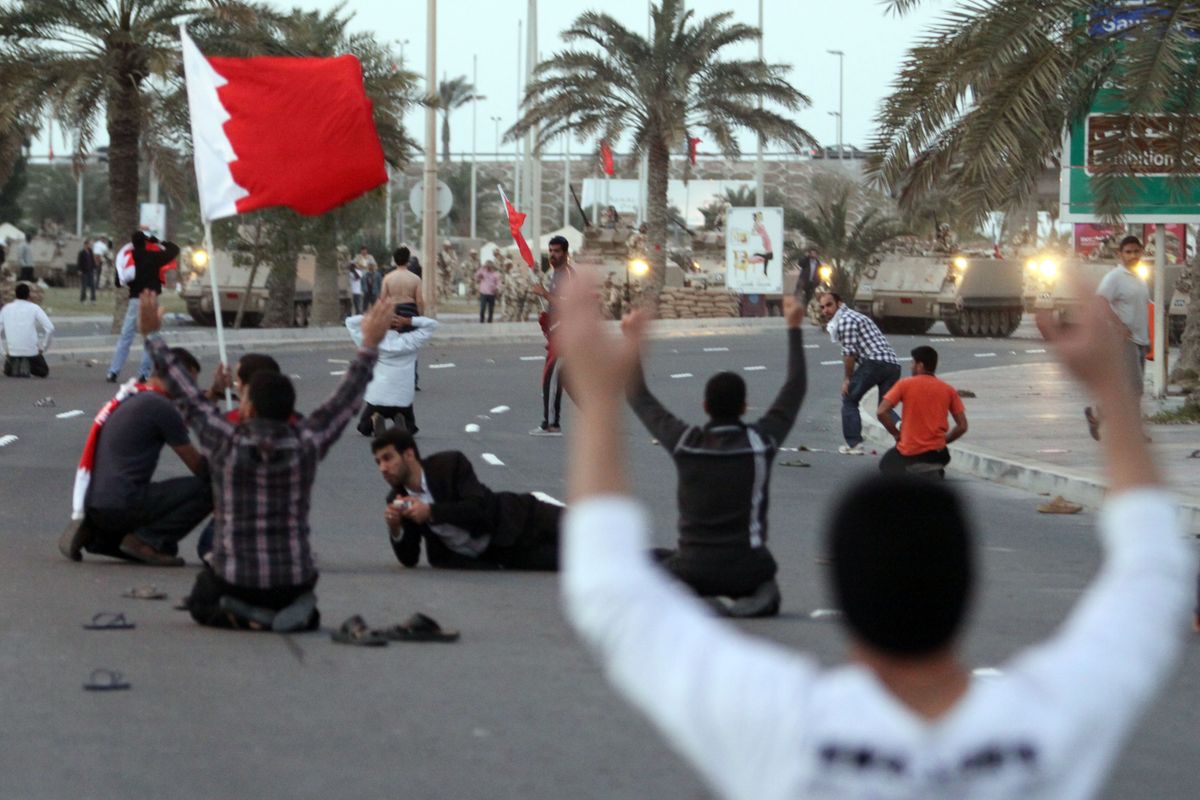Unrest in Libya deepening
Country’s clashes perhaps worst in Middle East

CAIRO, Egypt – Protesters clashed Friday with security forces in the Libyan capital of Tripoli and fought for control of key eastern cities in the most serious challenge to dictator Moammar Gadhafi’s 42 years in power, according to witnesses, online posts and news reports.
The Libyan bloodshed appeared to be the worst in the Middle East on a day that also saw troops fire on pro-democracy protesters in the Persian Gulf sheikdom of Bahrain and intense confrontations pitting protesters against security forces and government loyalists in Yemen.
Across the Gulf of Aden from Yemen, riot police used tear gas and batons to break up a protest by several thousand anti-government demonstrators in Djibouti, a city-state of 750,000 people in the Horn of Africa that hosts the only U.S. military base in Africa.
“The Arab world is experiencing a domino effect,” said Ghada el Sherif, 40, a demonstrator in Cairo.
Meanwhile, hundreds of thousands of Egyptians gathered in Cairo’s central Tahrir Square to mark a week since former President Hosni Mubarak’s ouster and to remind the transitional military authority that mass protests would continue if there weren’t speedy, transparent moves toward civilian rule.
Libya
In Libya, there were unconfirmed reports of many deaths and injuries on the third day of clashes between security forces and regime loyalists on one side and protesters inspired by the popular uprisings that ousted former rulers of Egypt and Tunisia on the other.
“We are hearing now the gunfire. We are hearing explosions from everywhere,” Braikah, a doctor, told McClatchy Newspapers by telephone from Benghazi, Libya’s second-largest city. She asked that her last name not be used for her own security. More than 30 people have been killed in Benghazi alone, and hundreds injured, she said.
Amnesty International, citing sources at Benghazi’s main hospital, put the casualty toll since Wednesday at 46 dead and more than 100 injured, and accused Gadhafi’s security forces of “recklessly shooting at anti-government protesters.”
The violence in Libya represented the biggest crisis for Gadhafi since he seized power in a bloodless 1969 coup and imposed one of region’s most ruthless authoritarian systems on his country of 6.4 million people. Establishing independent political parties or trade unions there is a crime punishable by death.
Bahrain
The violence in the Bahraini capital, Manama, erupted after the funerals of four protesters, who had been killed a day earlier when security forces charged sleeping anti-government protesters who were occupying central Pearl Square.
Thousands left the funerals to march back to the giant traffic circle, where they found soldiers and armored vehicles. As many knelt in evening prayer, the troops fired live ammunition and tear gas, igniting stampedes into nearby streets.
At least 66 people were injured by live ammunition and tear gas inhalation.
Yemen
Anti-government demonstrators clashed with supporters of Yemen’s longtime ruler and riot police in the capital of Sanaa during the ninth straight day of protests.
In the city of Taiz, what appeared to be a hand grenade was thrown at a group of protesters, seriously wounding at least 48 people in the blast and the stampede that followed. Protesters set cars, a local government building and a police warehouse ablaze in the port city of Aden and three demonstrators were killed.
Protesters demanded the resignation of President Ali Abdullah Saleh, a U.S. ally, who has ruled the Arab world’s poorest nation for 32 years.
Egypt
In Cairo, record crowds crammed into Tahrir Square to hear an Egyptian-born cleric, Sheik Youssef el Qaradawi, whose televised sermons are watched by millions of Muslims, lead Friday prayers.
Qaradawi stressed that political reform was still unfinished.
“I call on the Egyptian army to liberate us from the government that Mubarak formed,” he told the crowd to cheers.
Many protesters said the Egyptian military’s opaqueness in recent days frustrated them. Egypt’s Supreme Council of the Armed Forces, which is now in charge, warned that further protests and labor strikes wouldn’t be tolerated, but the generals have released few updates on a promise to secure the country for elections within six months.